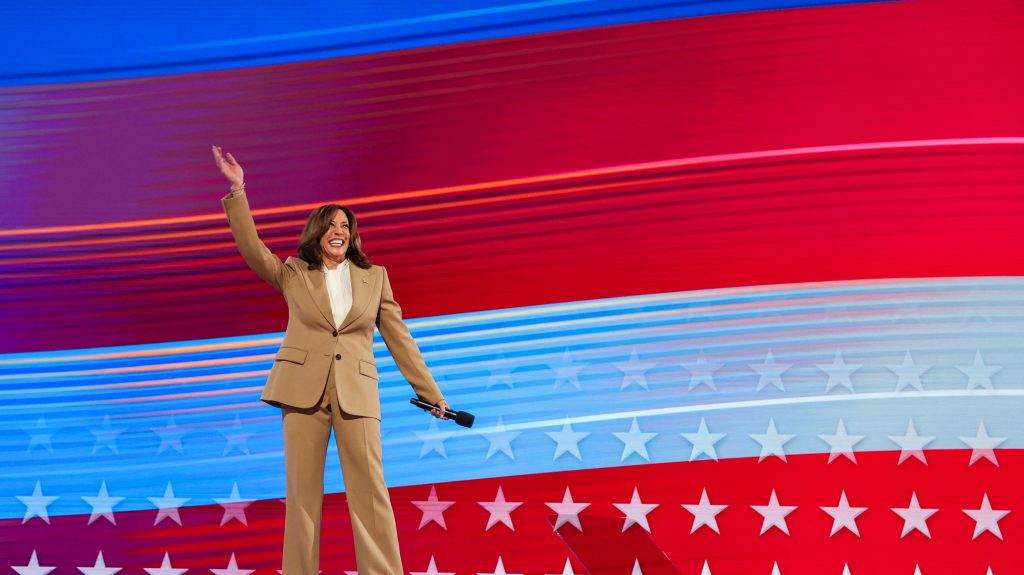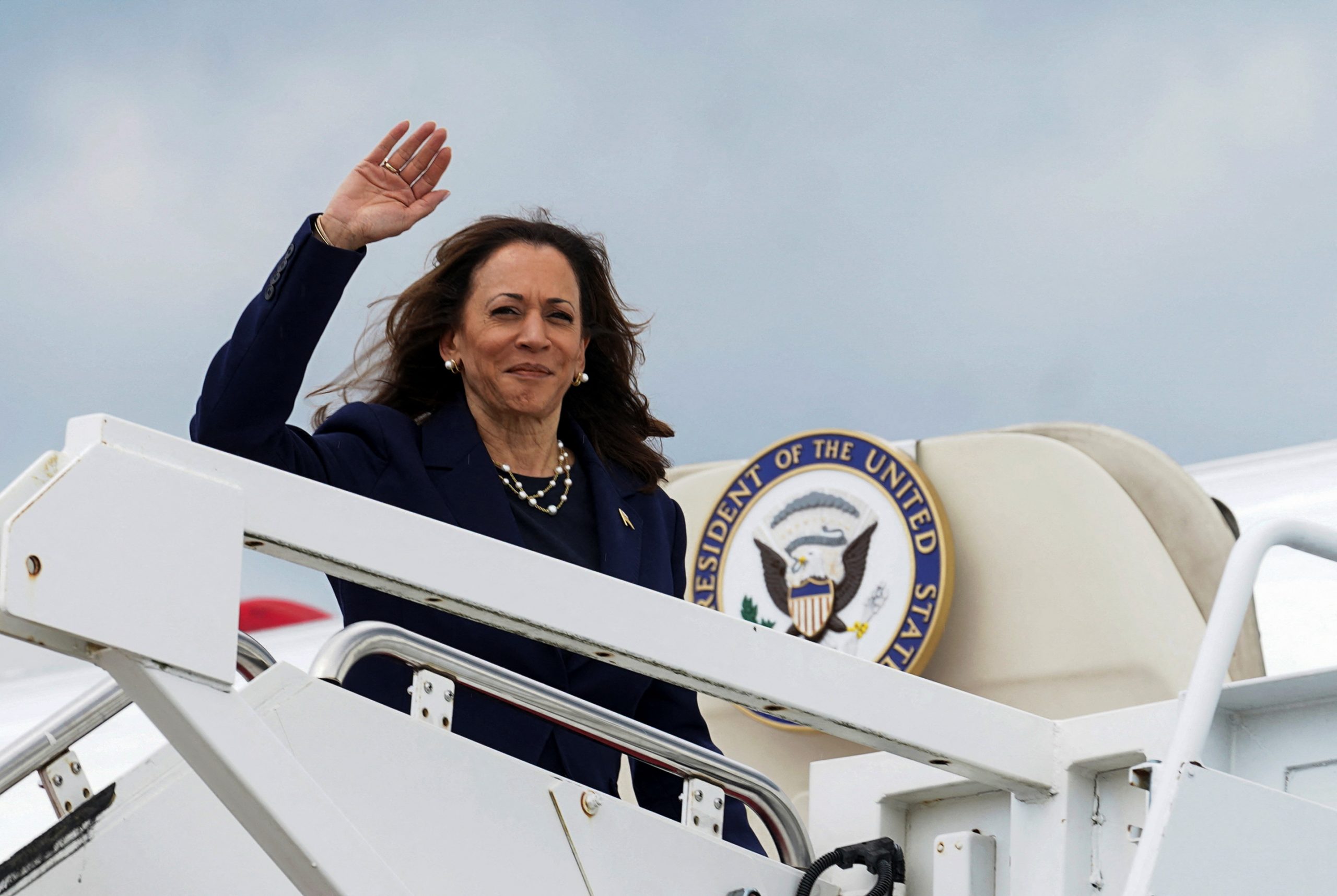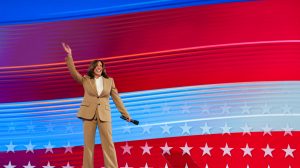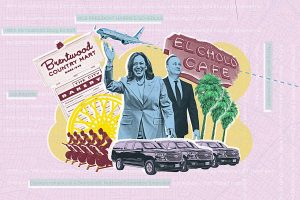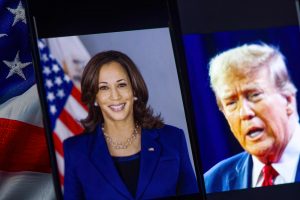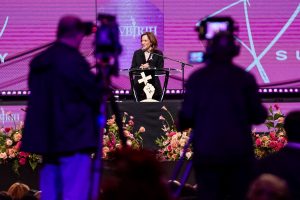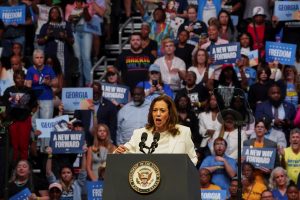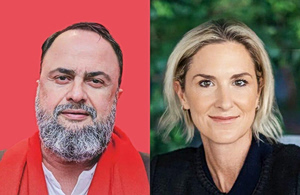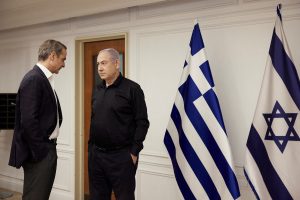Vice President Kamala Harris spent her teenage years in Montreal, where residents talk about her as if she is a local girl who made good.
Harris barely talks about Canada at all.
For a presidential candidate whose identity is part of her appeal to voters , the absence of Montreal—where she lived from age 12 to 18—from her biography is notable. She doesn’t mention it on her official White House website. In her Democratic National Convention acceptance speech , the only mention of Montreal was an oblique reference to “wherever our parents’ jobs took us.”
Harris’s time up north and her parents’ backgrounds as immigrants to America have already become the subject of political attacks. In July, former President Donald Trump ’s running mate JD Vance called Harris a “phony” and accused her of putting on a fake southern accent at a rally. “ Kamala Harris grew up in Canada. They don’t talk like that in Vancouver or Quebec, or wherever she came from,” said Vance.
Tyler Anbinder , a professor at George Washington University who specializes in the history of immigration and ethnicity in the U.S., said: “That she actually went to high school in Canada, which might make her seem more foreign, would be something that the Harris campaign wants to avoid.”
A spokeswoman for the Harris campaign declined to comment. Harris doesn’t often talk about her identity on the campaign trail, though she is a historic candidate as the first Black woman and person of Indian descent to be a major party’s nominee for president. When Trump questioned whether she was really Black , she said he was attempting to divide people over race.
Living abroad hasn’t in the past been a political liability for presidential candidates, said Daniel Rodgers , a professor of history emeritus at Princeton University. Bill Clinton studied at Oxford on a Rhodes scholarship and Herbert Hoover lived in China and London for years before becoming president. “In comparison, Kamala Harris’s high-school years in Canada barely count,” said Rodgers.
But Trump has been successful in using perceived foreign ties to cast doubt on his rivals’ loyalty to the U.S., said Stephanie DeGooyer , an associate professor at the University of North Carolina at Chapel Hill and an author of a book about the history of naturalization.
During the 2016 Republican presidential primaries, Trump called his rival Sen. Ted Cruz an “anchor baby in Canada,” and questioned Cruz’s eligibility to run for president because he was born in Calgary, Alberta.
Former President Barack Obama embraced the years he lived abroad in Indonesia, from age 6 to 10, while campaigning, but it created false conspiracy theories that he was a Muslim or not a U.S. citizen. Trump led the movement casting doubt on Obama’s American roots.
In 2020, Trump tried to question Harris’s eligibility to be president by citing an argument by conservative lawyer John Eastman that Harris couldn’t become president even though she was born in Oakland, Calif., because it is unclear whether her parents were naturalized U.S. citizens at the time of her birth. The theory has been debunked by legal scholars.
“Even if it doesn’t hold any legal water, just the suggestion that Harris lived outside the country sows doubt about her attachment to it,” said DeGooyer.
Harris’s time in Montreal began in 1976, when her mother, Shyamala Gopalan Harris , got a research and teaching job at McGill University’s Lady Davis Institute for Medical Research at the Jewish General Hospital.
The six-year period gets a six-paragraph summary in Harris’s memoir, “The Truths We Hold: An American Journey.”
“I was 12 years old, and the thought of moving away from sunny California in February, in the middle of the school year, to a French-speaking foreign city covered in 12 feet of snow was distressing, to say the least,” wrote Harris.
Despite the culture shock she encountered in the Canadian city, Harris quickly adapted, she writes. She spent some time in a Catholic school to learn some French, and transferred to an arts-oriented alternative school. She then went to Westmount High School, the alma mater of songwriter and poet Leonard Cohen .
In the summers, she returned home to her father’s home in California.
Trevor Williams , who dated Harris’s sister Maya for two years in high school, said the Harris family lived in a comfortable townhouse. He described the Harris girls as “pleasant, friendly young ladies,” noting that the future vice president was in fashion and variety shows as part of a dance troupe called “Midnight Magic.”
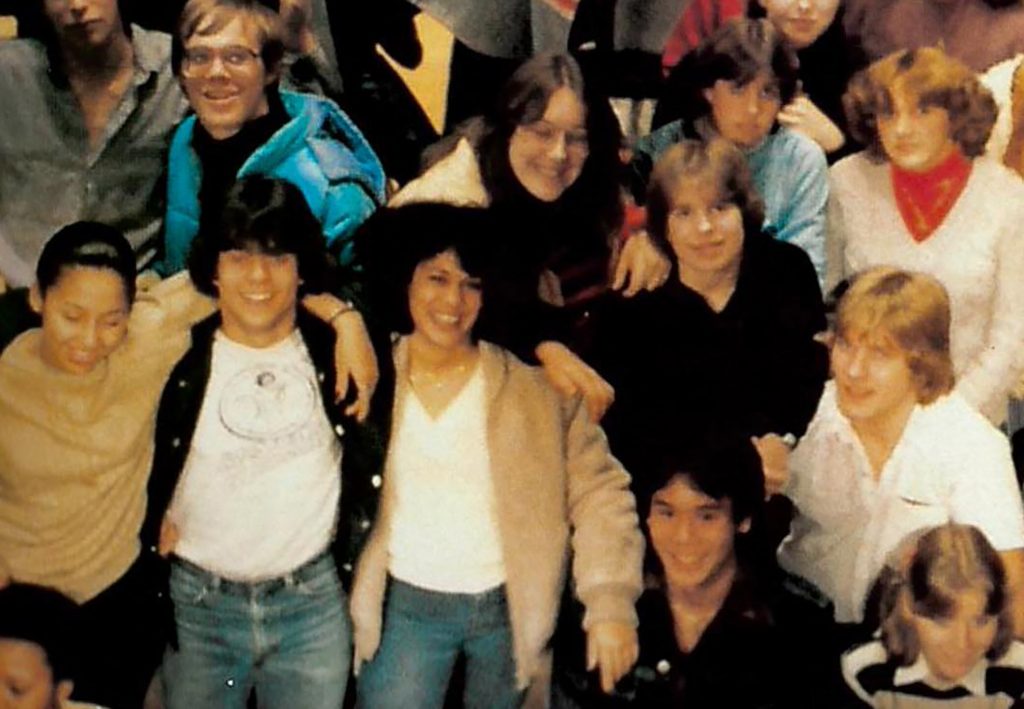
This 1981 yearbook image released by the Westmount High School and the English Montreal School Board, shows Kamala Harris (C) posing with classmates. Born in California, Harris spent her adolescence in Montreal and despite pining for home, former Canadian classmates remember her as an outgoing student with a big smile, who loved dancing. It was in 1976 at the age of 12 that the US vice president and Democratic candidate in this year’s US presidential election discovered the harsh, cold winters of Canada’s second largest city. (Photo by Handout / English Montreal School Board/Westmount High School / AFP)
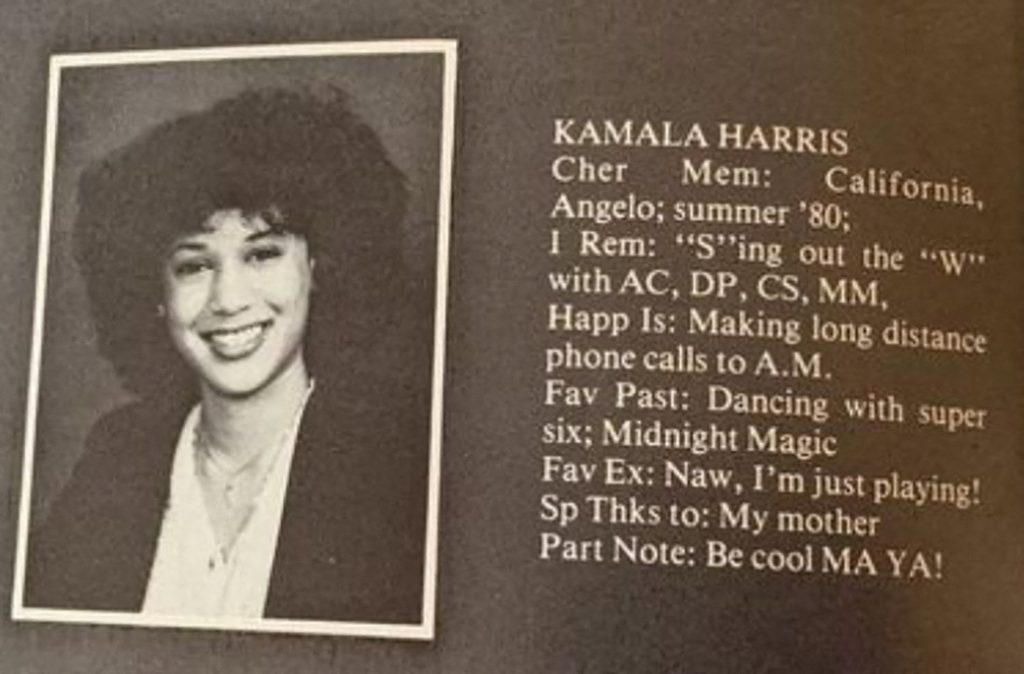
This undated yearbook image released by the Westmount High School and the English Montreal School Board, shows Kamala Harris. Born in California, Harris spent her adolescence in Montreal and despite pining for home, former Canadian classmates remember her as an outgoing student with a big smile, who loved dancing. It was in 1976 at the age of 12 that the US vice president and Democratic candidate in this year’s US presidential election discovered the harsh, cold winters of Canada’s second largest city. (Photo by Handout / English Montreal School Board/Westmount High School / AFP).
She mingled easily with the Canadian students, particularly those from the largely Black Montreal community of Little Burgundy, but it was always clear from her outgoing manner that she was an American with American roots, said Wayne Yearwood , a former classmate.
One Montreal moment has become a formative experience that she cites in speeches. It was in this Canadian city that her best friend, Wanda Kagan , confided in Harris that she was being sexually assaulted by her stepfather. The Harris family took Kagan in with them, and Harris said the experience sparked her interest in public law.
“This is one of the reasons I became a prosecutor: to protect people like Wanda, because I believe everyone has a right to safety, to dignity and to justice,” Harris said during her convention speech.
Kagan declined to comment.
After graduating from Westmount, which only went up to 11th grade, Harris spent some time at Montreal’s Vanier College, for her 12th grade marks, so she could apply to U.S. colleges.
“I felt this constant sense of yearning to be back home,” Harris wrote in her memoir. “There was no question in my mind I’d return home for college.”
In 1982, Kamala Harris left Montreal to go to Howard University in Washington, D.C., and, by all accounts, never looked back.
Despite Harris’s apparent reluctance to discuss her Montreal years, some in the city are excited by the prospect of her winning November’s election.
“We have schools here named for presidents like JFK, that aren’t from here,” said Mike Cohen , spokesman for the English Montreal School Board, which has oversight of Westmount High School. “Imagine if she wins. She’s actually a graduate. We’re going to have to do something big.”
Write to Vipal Monga at vipal.monga@wsj.com
